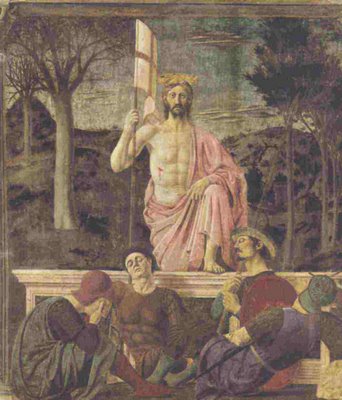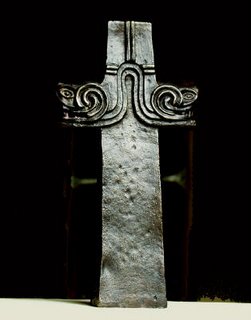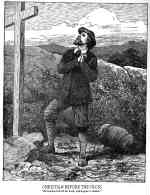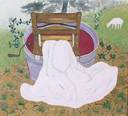
Note: The following are several random sentences and paragraphs from my manuscript of this Sunday’s sermon (04/02/06).
Title: He prepares our table!
Text: Luke 5:27-32; 14:7-24; 15:1-2; 19:1-10
Except for the passage in Luke 14, these passages share the theme of Jesus eating with sinners - particularly notorious sinners at that! Further, they all relay for us the criticism which Jesus received for coming to the table with sinners! Of course "sinners" had no such scruples, and were themselves, therefore, "unclean." It was a very small step, then, to regard those who ate with such sinners as unclean themselves.
The scandal of Jesus eating with sinners no doubt also stemmed from the way in which people of that day regarded the fellowship of mealtime. Jesus was just not careful enough about his table companions! He was entirely too willing to eat with disreputable people. Why would Luke want to record such embarrassing things as this about Jesus? Jesus has come to bring sinners into fellowship with God, and these dinner scenes are but little pictures of this bigger picture.
Since Jesus himself gives us this interpretation there’s no missing it (Luke 5:31-32; 19:10).
Think in terms of "the big picture." The great announcement which Jesus made is, simply, “the kingdom of God is at hand!” If Jesus were to come to your house to eat, whom would you invite? We forget that it is for just these kinds of people Jesus came! And we forget that when sinners get close to Jesus, they tend to get saved!
Aren’t you glad Jesus wasn’t a religious snob? More personally, where would you be if Jesus associated only with good people? Think of the woman with the issue of blood. Outcast and ceremonially unclean though she was, she didn’t contaminate Jesus. He didn’t contract the defilement - he communicated cleansing and healing grace. So also when Jesus sits to eat with a tax collector - the scum of Jewish society – he’s not dirtied by the association. Levi bows, Zacchaeus repents, and sinners are made whole!
Jesus wants us to see in these scenes of table fellowship, not only a picture of his saving mission. Jesus’ parable in Luke 14:16ff follows an exclamation by a guest, "Blessed is he who shall eat bread in the kingdom of God!" This is a common picture of future grace in Scripture. Sinners, brought by grace to a feast – an eternal feast – the supper of the Lamb!
The whole long and short of these scenes lies in that criticism leveled against our Lord in Luke 15:2 - "This man receives sinners!"
















